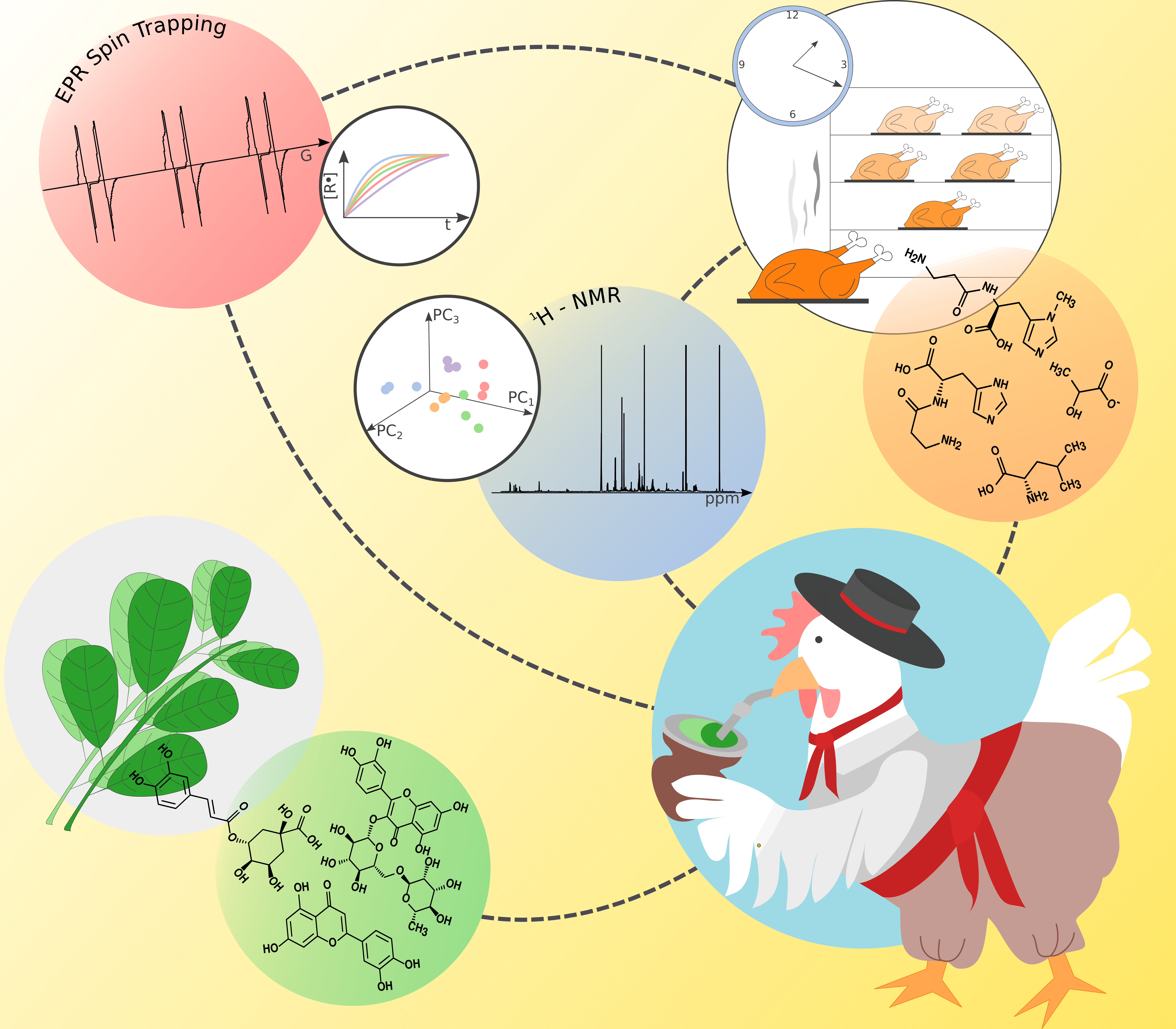
Mate as Dietary Supplement for Broiler Chickens: Effect on the Metabolic Profile and Redox Chemistry of Meat
Abstract
Moderate supplementation with extract of mate to a standard broiler diet in feeding experiment with 5 treatment groups was found to increase production of endogenous antioxidants in muscles, improving meat quality and storage stability. For addition of 250 or 500 mg extract per kg feed, pre-cooked meatballs made from the breast muscles had a significant lower level of secondary lipid oxidation products during one week of chill storage. Addition of 750 or 1000 mg extract per kg feed had an increasing prooxidative effect during storage of the meatballs. For the moderate levels of plant phenols in feed, a metabolic study based on nuclear magnetic resonance (NMR) spectroscopy of meat extracts showed that mate extract added to the feed increased the muscle level of antioxidative peptides like anserine, while indication of toxic effects was noted for the higher levels of feed additives. Rate of formation of radicals as detected by electron paramagnetic resonance (EPR) spectroscopy was found to correlate with the oxidative damage and a kinetic analysis demonstrated that the antioxidative effect of mate supplemented to the feed could be assigned to radical scavengers present in the meat. These findings for the monogastric animals are different from results previously obtained for ruminants, where plant phenols rather seem to affect the microflora of the digestive tract.
